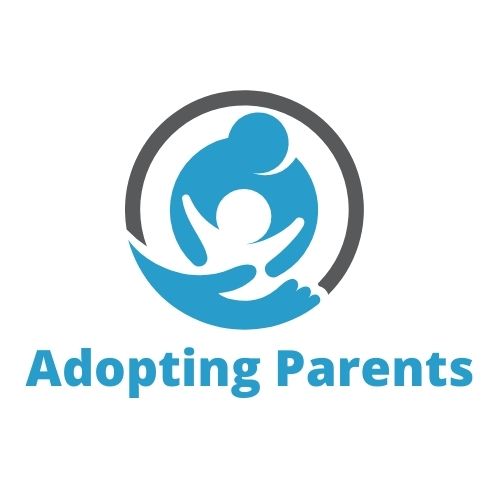
Post-Adoption Support Services: What’s Available for Adoptive Families
Adoption is a profound and life-altering experience, not just for the child being adopted but also for the adoptive family. While the journey to adoption is filled with excitement and joy, it can also be challenging, and the challenges don’t end once the adoption is finalized. Post-adoption support services, including sleep coaching services, play a crucial role in ensuring the well-being of adoptive families and the children they welcome into their homes. In this article, we will explore the various post-adoption support services available for adoptive families.
Understanding the Need for Post-Adoption Support
Adoptive families come from diverse backgrounds and face unique circumstances, but they all share the common goal of providing a loving and stable home for a child. However, adoption is not without its complexities. Children who have been adopted may have experienced trauma, loss, or neglect before joining their adoptive families. These experiences can manifest in various ways, including emotional and behavioral challenges.
Adoptive parents may also encounter difficulties in navigating the legal, emotional, and practical aspects of adoption. They may need guidance on how to address issues related to identity, attachment, and integration into the family. Post-adoption support services are designed to address these challenges and provide a safety net for adoptive families.
Types of Post-Adoption Support Services
- Counseling and Therapy: Many adoptive families find it beneficial to engage in individual or family counseling. Therapists who specialize in adoption-related issues can help adoptive parents and children navigate the emotional challenges that may arise. These professionals can provide strategies for building attachment and communication within the family.
- Support Groups: Joining an adoptive parent support group can be immensely helpful. These groups offer a sense of community, allowing adoptive parents to connect with others who have similar experiences. Sharing stories and advice can be reassuring and empowering.
- Education and Training: Adoptive parents may benefit from ongoing education and training. Workshops and seminars on topics like attachment, trauma-informed parenting, and transracial adoption can provide valuable insights and tools for parenting effectively.
- Respite Care: Caring for children with a history of trauma or special needs can be physically and emotionally draining. Respite care services provide temporary relief for adoptive parents, allowing them to recharge and prevent burnout.
- Case Management Services: Some adoptive families may require assistance with legal and administrative matters related to adoption. Case managers can guide families through the complexities of the adoption process, including post-placement visits and paperwork.
- Access to Mental Health Services: For children who have experienced trauma, access to mental health services is crucial. Post-adoption support services often provide referrals to qualified mental health professionals who can offer specialized care.
- Search and Reunion Services: In cases of open adoption or when the adopted child becomes curious about their birth family, search and reunion services can facilitate contact and provide emotional support for all parties involved.
- Financial Assistance: Adoption can be expensive, and some adoptive families may face financial challenges. Some post-adoption support programs offer financial assistance or grants to help families with adoption-related expenses.
- Legal Assistance: Legal issues can arise in adoption, such as challenges to the adoption decree or issues related to custody. Adoptive families may benefit from access to legal professionals who specialize in adoption law.
- Crisis Intervention: In times of crisis or emergency, adoptive families may need immediate support. Crisis intervention services can provide guidance and resources during these challenging moments.
The Benefits of Post-Adoption Support Services
Post-adoption support services offer numerous benefits to adoptive families:
- Strengthening Family Bonds: Counseling and therapy can help strengthen the bonds between adoptive parents and their children, promoting healthy attachment and communication.
- Reducing Stress: Support groups and respite care can alleviate the stress and exhaustion that can come with parenting children who have experienced trauma or have special needs.
- Enhancing Parenting Skills: Education and training can empower adoptive parents with the knowledge and tools they need to address the unique challenges of adoption.
- Providing a Support Network: Support groups and community connections offer adoptive parents a network of individuals who understand their experiences and can offer guidance and empathy.
- Ensuring Child Well-Being: Access to mental health services and crisis intervention can ensure that children’s emotional and psychological needs are met.
- Legal and Administrative Assistance: Case management and legal assistance services can help adoptive families navigate the bureaucracy and legal requirements associated with adoption.
How to Access Post-Adoption Support Services
Accessing post-adoption support services varies depending on your location and the agency or organization through which you adopted your child. Here are some steps to consider:
- Contact Your Adoption Agency: Start by reaching out to the adoption agency or organization through which you adopted your child. They may offer post-adoption support services or be able to refer you to organizations that do.
- Search Online Resources: There are numerous national and regional organizations that provide post-adoption support services. Websites and directories can help you locate services in your area.
- Connect with Support Groups: Joining local adoptive parent support groups can be an excellent way to access resources and connect with others who have gone through similar experiences.
- Consult Your Child’s Healthcare Provider: Your child’s pediatrician or mental health provider may also be able to provide recommendations for support services.
- Reach Out to Social Services: Social services agencies often provide information and referrals for adoptive families in need of support.
Conclusion
Adoption is a beautiful journey, but it also comes with its unique challenges. Post-adoption support services are a vital resource for adoptive families, providing them with the tools, guidance, and community they need to navigate the complexities of adoption successfully. By accessing these services, adoptive families can ensure the well-being and happiness of both themselves and the children they have welcomed into their homes, creating a loving and stable environment in which every child can thrive.…





